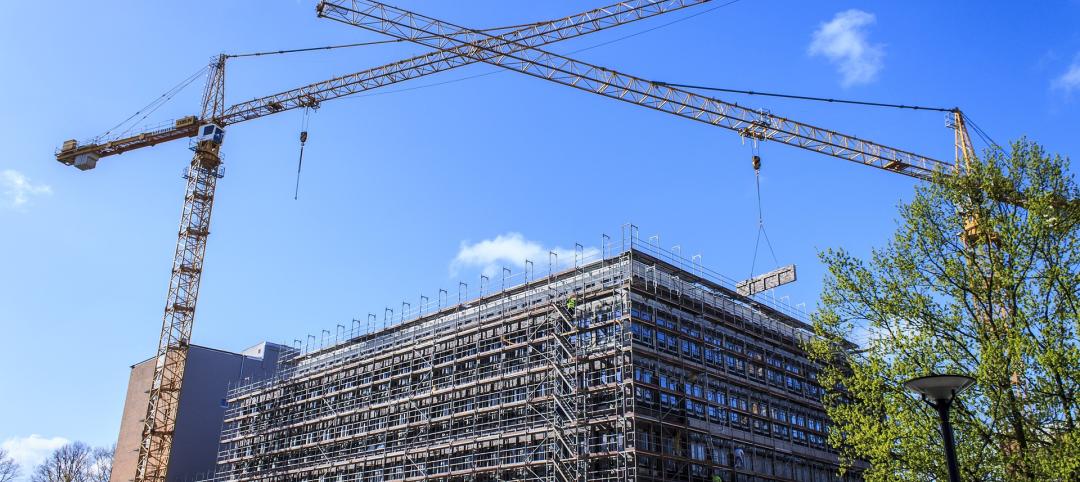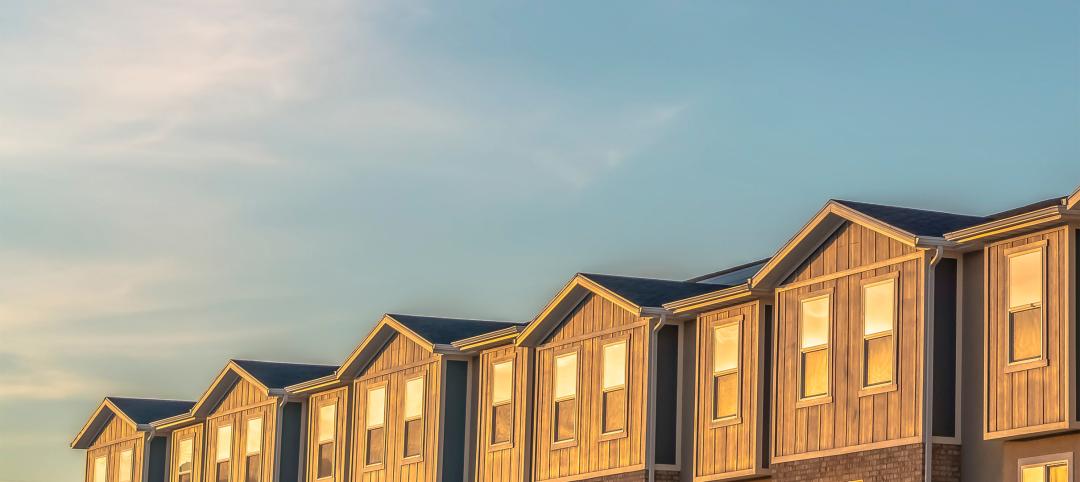President Trump and candidate Biden should establish and implement a nationwide plan for the distribution of approved coronavirus vaccines, the Associated General Contractors of America advised today in a letter to the two presidential candidates (Trump and Biden). Establishing such a nationwide plan will help avoid the confusion, delays and potential economic hardships that would result from delegating all responsibility to state and local officials.
“A thoughtful and comprehensive plan to rollout the ultimately approved vaccine for the coronavirus will ensure that the construction industry can continue to provide support for other critical sectors of the economy,” wrote Stephen E. Sandherr, the association’s chief executive office, in the letters to the two candidates. “There is the real potential that conflicting and confusing priorities at the state and local level will undermine the distribution process.”
Sandherr noted that one of the clear lessons to come out of the early response to the pandemic was that the distribution of essential medical supplies should not be completely delegated to the states. He noted that many of the association’s member firms struggled to locate essential personal protective equipment as states competed against each other to stockpile items like masks, hand sanitizers and gloves.
He cautioned that delegating all responsibility for the distribution of vaccines to the states would create similar problems. Instead, he urged federal officials to establish and implement a single federal plan for nationwide distribution of vaccines, just as it established and implemented a federal plan for their development. Such a nationwide plan would limit the risk of voluminous and conflicting guidelines at the state and local levels, Sandherr added.
The federal plan should also prioritize the rational distribution of vaccines, based on risk and need, to ensure that vaccinations are distributed to the same groups, in the same order, throughout the country. He suggested that the plan should begin with vulnerable populations, followed by essential workers who are at the greatest risk of infection, including first responders and health care workers. Construction workers should merit priority over other essential workers who have the option of working remotely, he added.
Sandherr also said a nationwide plan will mitigate the risk of public officials demanding that essential services like construction shut down until the vaccines are widely distributed. He noted that such shutdowns would inflict additional, needless, hardships on workers and their families. And the shutdowns would be in complete disregard of the widespread safety protocols that have been put in place to allow essential economic activities, like construction, to continue safely during the pandemic.
“The federal government and the private sector have gone to great lengths to facilitate the development of multiple vaccine candidates that will, hopefully, soon be approved and made available,” Sandherr noted. “The tremendous potential for this hard work and innovation to turn the country around will not, however, be realized if the subsequent distribution of vaccines is wholly delegated to state and local governments.”
Related Stories
Retail Centers | Apr 4, 2024
Retail design trends: Consumers are looking for wellness in where they shop
Consumers are making lifestyle choices with wellness in mind, which ignites in them a feeling of purpose and a sense of motivation. That’s the conclusion that the architecture and design firm MG2 draws from a survey of 1,182 U.S. adult consumers the firm conducted last December about retail design and what consumers want in healthier shopping experiences.
Market Data | Apr 1, 2024
Nonresidential construction spending dips 1.0% in February, reaches $1.179 trillion
National nonresidential construction spending declined 1.0% in February, according to an Associated Builders and Contractors analysis of data published today by the U.S. Census Bureau. On a seasonally adjusted annualized basis, nonresidential spending totaled $1.179 trillion.
Market Data | Mar 26, 2024
Architecture firm billings see modest easing in February
Architecture firm billings continued to decline in February, with an AIA/Deltek Architecture Billings Index (ABI) score of 49.5 for the month. However, February’s score marks the most modest easing in billings since July 2023 and suggests that the recent slowdown may be receding.
K-12 Schools | Mar 18, 2024
New study shows connections between K-12 school modernizations, improved test scores, graduation rates
Conducted by Drexel University in conjunction with Perkins Eastman, the research study reveals K-12 school modernizations significantly impact key educational indicators, including test scores, graduation rates, and enrollment over time.
MFPRO+ News | Mar 16, 2024
Multifamily rents stable heading into spring 2024
National asking multifamily rents posted their first increase in over seven months in February. The average U.S. asking rent rose $1 to $1,713 in February 2024, up 0.6% year-over-year.
Market Data | Mar 14, 2024
Download BD+C's March 2024 Market Intelligence Report
U.S. construction spending on buildings-related work rose 1.4% in January, but project teams continue to face headwinds related to inflation, interest rates, and supply chain issues, according to Building Design+Construction's March 2024 Market Intelligence Report (free PDF download).
Contractors | Mar 12, 2024
The average U.S. contractor has 8.1 months worth of construction work in the pipeline, as of February 2024
Associated Builders and Contractors reported that its Construction Backlog Indicator declined to 8.1 months in February, according to an ABC member survey conducted Feb. 20 to March 5. The reading is down 1.1 months from February 2023.
Market Data | Mar 6, 2024
Nonresidential construction spending slips 0.4% in January
National nonresidential construction spending decreased 0.4% in January, according to an Associated Builders and Contractors analysis of data published today by the U.S. Census Bureau. On a seasonally adjusted annualized basis, nonresidential spending totaled $1.190 trillion.
Multifamily Housing | Mar 4, 2024
Single-family rentals continue to grow in BTR communities
Single-family rentals are continuing to grow in built-to-rent communities. Both rent and occupancy growth have been strong in recent months while remaining a financially viable option for renters.
MFPRO+ News | Mar 2, 2024
Job gains boost Yardi Matrix National Rent Forecast for 2024
Multifamily asking rents broke the five-month streak of sequential average declines in January, rising 0.07 percent, shows a new special report from Yardi Matrix.

















